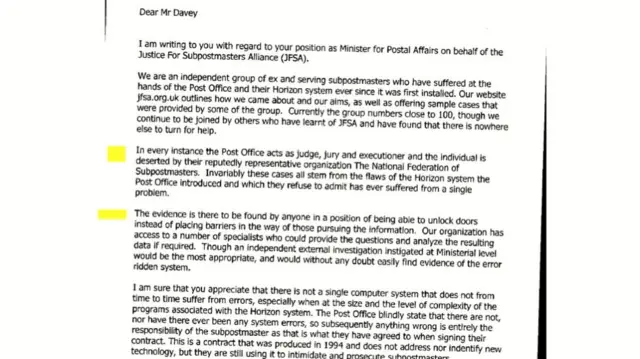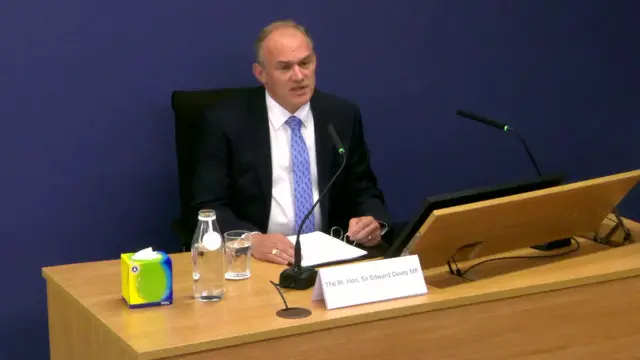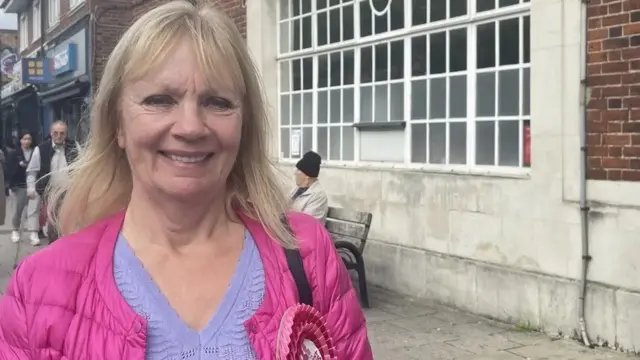Letter from Priti Patel and other MPs shown to Daveypublished at 14:56 BST 18 July 2024
Davey is now being shown a letter from Priti Patel MP about one of her constituents, who was facing issues with the Horizon IT system.
The letter, dated one day before Alan Bates's letter, asks for a meeting with him. Davey says the letter was not brought to his attention, but it probably should have been.
"I wasn't aware she was seeking a meeting," Davey adds.
He's then shown a series of letters from other MPs highlighting issues their respective constituents had experienced with the Post Office's IT system as sub-postmasters and sub-postmistresses.



